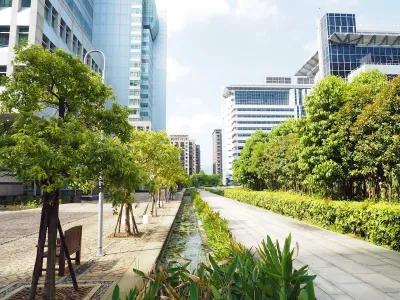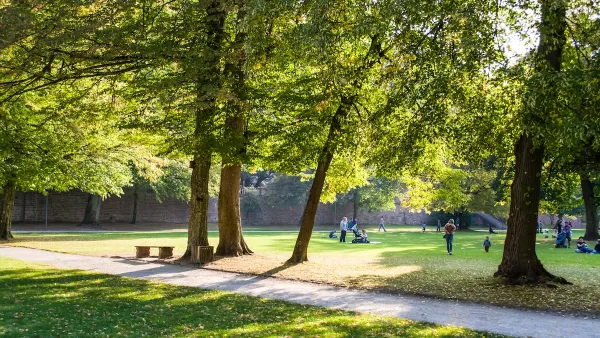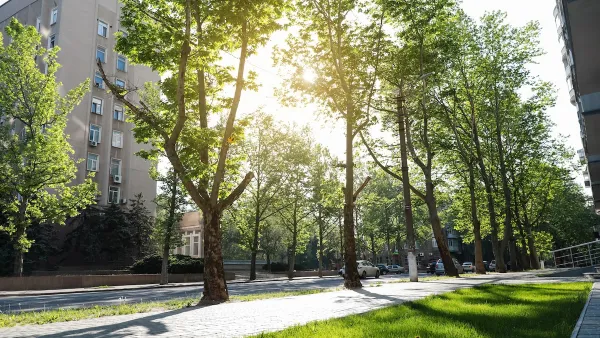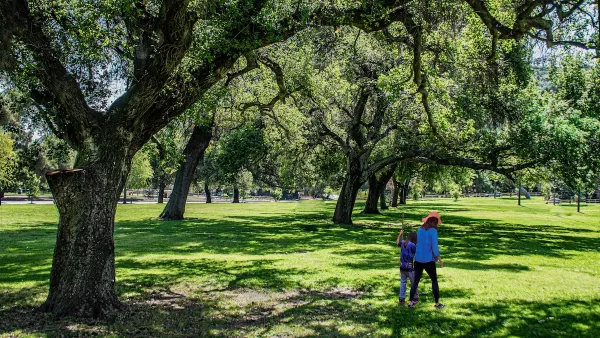Urban forestry job training programs are creating economic opportunities for underrepresented individuals while addressing workforce shortages and advancing tree equity in communities most impacted by environmental disparities.

Kris Cameron’s story exemplifies how urban forestry job training programs can provide life-changing opportunities for formerly incarcerated individuals. After struggling to secure stable employment, he joined the Green Reentry Job Training program at Garden Time, a Rhode Island nonprofit dedicated to preparing individuals for careers in tree care. The program gave him technical skills in arboriculture, professional support, and essential life skills, leading to his promotion as a foreman at Groundwork Rhode Island. His journey reflects the broader impact of these programs, which not only help participants rebuild their lives but also address workforce shortages in the green industry.
As rising temperatures and environmental challenges heighten the need for tree cover in underserved communities and older professionals retire from the field, urban forestry faces a labor gap that organizations like American Forests are working to fill. Through its Tree Equity Workforce Network, American Forests funds training initiatives like Garden Time, The Works in Memphis, and Tucson Clean and Beautiful, helping underrepresented individuals enter the tree-care profession. These programs provide technical education alongside wraparound services such as transportation, housing support, and mentorship, ensuring that trainees have the resources to succeed in their new careers.
As reported by Nicole Greenfield, tree equity is about more than planting trees — it is about creating economic opportunities for those most affected by environmental disparities. Programs like The Works’ Tree CPR train residents in communities with low tree canopy, equipping them with skills to improve their neighborhoods while securing stable employment. By expanding these initiatives, American Forests and its partners are not only greening cities but also fostering economic mobility and social justice. As participants plant and maintain trees that will outlive them, they are creating lasting legacies of resilience, opportunity, and environmental stewardship.
FULL STORY: Branching out: Growing careers and spreading equity through urban forestry

National Parks Layoffs Will Cause Communities to Lose Billions
Thousands of essential park workers were laid off this week, just before the busy spring break season.

Retro-silient?: America’s First “Eco-burb,” The Woodlands Turns 50
A master-planned community north of Houston offers lessons on green infrastructure and resilient design, but falls short of its founder’s lofty affordability and walkability goals.

Delivering for America Plan Will Downgrade Mail Service in at Least 49.5 Percent of Zip Codes
Republican and Democrat lawmakers criticize the plan for its disproportionate negative impact on rural communities.

Test News Post 1
This is a summary

Test News Headline 46
Test for the image on the front page.

Balancing Bombs and Butterflies: How the National Guard Protects a Rare Species
The National Guard at Fort Indiantown Gap uses GIS technology and land management strategies to balance military training with conservation efforts, ensuring the survival of the rare eastern regal fritillary butterfly.
Urban Design for Planners 1: Software Tools
This six-course series explores essential urban design concepts using open source software and equips planners with the tools they need to participate fully in the urban design process.
Planning for Universal Design
Learn the tools for implementing Universal Design in planning regulations.
EMC Planning Group, Inc.
Planetizen
Planetizen
Mpact (formerly Rail~Volution)
Great Falls Development Authority, Inc.
HUDs Office of Policy Development and Research
NYU Wagner Graduate School of Public Service





























